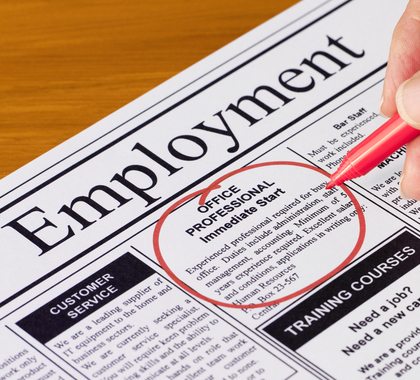The Kansas Senate has approved a bill to make reforms to the state’s welfare entitlement program.
If approved by the House and signed into law by Gov. Sam Brownback (R), Senate Bill 372 will enact reforms discouraging long-term dependence and welfare fraud and will encourage welfare recipients to seek employment.
Lawmakers in the state Senate approved the bill in February, but the House of Representatives’ Committee on Health and Human Services has not yet taken up the bill.
Safety Nets, Not Hammocks
Rodger Woods, deputy state director for the Kansas chapter of Americans for Prosperity, says time limits on entitlement benefits help taxpayers and entitlement recipients.
“First, they provide a level of certainty for families in need of help, while providing a strong incentive to improve their future situation through work or work training,” Woods said. “Secondly, the time limits ensure resources are available for other families that need assistance.”
Woods says the new reforms are not exceptionally strict in comparison with other states’ entitlement rules.
“The bill that passed this year would reduce the time limit to 24 months, with a possible extension to 36 months for extraordinary circumstances,” Woods said. “Six states have reduced their time limit below 60 months, and 14 other states have limits between 36 and 60 months. The shortest limit in any state is 12 months.”
Lottery Winners Receiving Welfare
Woods says the bill also requires the state government’s lottery program to ensure lucky winners are not receiving taxpayers’ money, too.
“Many states have restrictions on using benefit cards for the purchase of lottery tickets or at casinos,” Woods said. “I am not aware of any other states that review the benefits of state lottery winners. In light of several high-profile instances of lottery winners receiving benefits, I expect other states to adopt this approach.”
‘Serves as a Gatekeeper’
Rachel Sheffield, a policy analyst for The Heritage Foundation, says work requirements for welfare assistance programs encourage people to work to improve their own situations, instead of expecting taxpayers to support them.
“A work requirement serves as a gatekeeper,” Sheffield said. “Welfare assistance is available to those who need it. For those who could be working, it encourages them first towards work. Thus, resources are directed towards those who are most in need.”
Sheffield says the work requirements benefit recipients in the long term.
“Reducing unnecessary enrollment in welfare is beneficial,” Sheffield said. “Time spent on welfare doesn’t look good on a resume, and a connection to the labor force helps individuals develop job skills, make and keep employment contacts, and improve their long-term earning potential.”
Michael Bates ([email protected]) writes from Tulsa, Oklahoma.
Internet Info:
Sheldon Danziger, et al., “Does It Pay to Move from Welfare to Work?” Journal of Policy Analysis and Management, April 1, 2002: https://heartland.org/policy-documents/does-it-pay-move-welfare-work/




